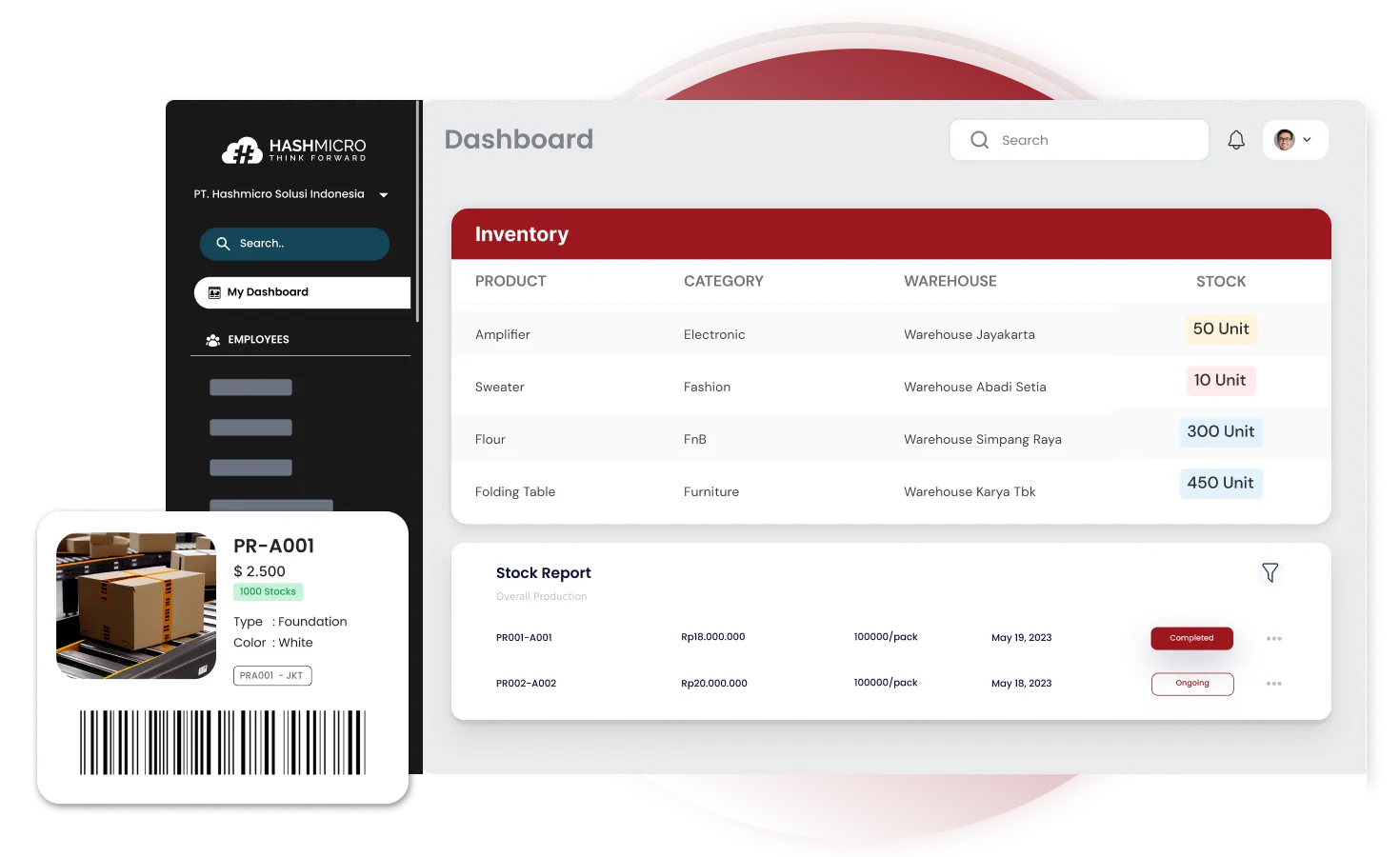Struggling to keep up with mga pangangailangan ng customer? Traditional distribution methods might slow you down and cut into your profits. Imagine having a system that tracks your inventory and gets your products to customers faster. This is how a Distribution Management System (DMS) can streamline your operations.
Don’t let outdated processes hold you back—explore the benefits of a DMS now before your competitors do. If you’re still handling things manually, you’re missing out on faster deliveries and bigger profits. Read on to see how the power of a DMS can help your business grow!
Key Takeaways
|
Table of Contents

What is a Distribution Management System?

A Distribution Management System (DMS) is a comprehensive platform that helps distributors and wholesalers efficiently manage the flow of goods across the supply chain. It covers crucial functions such as inventory tracking, order management, logistics coordination, and supply chain optimization.
The system ensures that products are available when and where needed by providing real-time visibility into stock levels and delivery processes, reducing delays and minimizing errors.
DMS also plays a vital role in cost control by streamlining processes such as just-in-time inventory and warehouse management, which helps prevent overstocking or stockouts. Moreover, a DMS fosters better market competitiveness by allowing businesses to respond quickly to customer demands.
Why Does it Matter?
Effective distribution management is crucial because it directly impacts a business’s ability to meet customer demands efficiently. When products are delivered through streamlined processes, delays are minimized, operational costs are reduced, and timely availability of goods is ensured.
This enhances the shopping experience and fosters customer loyalty by consistently meeting or exceeding expectations. Additionally, well-managed distribution helps businesses stay competitive by optimizing inventory levels and reducing wastage.
Companies can anticipate demand, adjust stock levels, and use advanced tools like real-time tracking and analytics to prevent costly overstocking or stockouts. This efficiency leads to higher customer satisfaction, cost savings, and a stronger market presence.
Key Elements of a Distribution Management System
A Distribution Management System (DMS) is crucial for businesses aiming to smoothen the flow of products. It involves managing various components that contribute to efficient product delivery. Understanding the key elements of a DMS helps businesses maintain optimal performance.
Some of the elements are:
- Supply Chain Management: Ensures efficient movement of goods from production to the consumer.
- Inventory Management: Tracks and controls stock levels to avoid overstocking or stock shortages.
- Logistics Management: Manages the transportation of goods, ensuring timely delivery.
- Warehouse Management: Enhances storage efficiency and handling of products within warehouses.
These components are the backbone of an effective distribution strategy. By optimizing each, companies can reduce operational costs, improve customer satisfaction, and stay competitive. A well-implemented DMS ensures smooth business processes and long-term success.
Benefits of a Robust Distribution Management System
A robust Distribution Management System (DMS) offers significant advantages for businesses, helping them stay competitive and efficient. By implementing an effective DMS, companies can streamline their operations and better meet customer demands.
Here are some key benefits of utilizing a strong DMS:
- Increased operational efficiency: Streamlines processes and lowers overhead costs.
- Improved customer service: Ensures stock availability aligns with customer demand patterns, boosting satisfaction.
- Reduced spoilage and warehousing costs: Minimizes excess inventory, leading to lower storage costs.
- Enhanced real-time data visibility: Provides insights into stock levels, allowing for more informed decision-making.
- Optimized supply chain management: Coordinates better with suppliers and logistics, ensuring smooth product flow.
These benefits demonstrate the value of a well-implemented DMS. By enhancing efficiency, improving customer satisfaction, and reducing costs, businesses can optimize their performance and remain competitive in the market.
The Importance of Efficient Distribution Management System
An efficient Distribution Management System (DMS) is essential for driving profitability and improving customer satisfaction. Businesses can automate and streamline the entire distribution process by using a DMS, ensuring products are available on time and reducing costly delays.
The system helps minimize waste and cut operational costs through real-time tracking and inventory management. Without a DMS, businesses risk inefficiencies that lead to overstocking and higher storage costs. A well-implemented DMS provides actionable data insights, allowing companies to forecast demand more accurately.
The Channels of Distribution in a Distribution Management System
There are various channels through which goods are distributed, each playing a distinct role in getting products to the market. Here are the four main channels of distribution that are commonly used in the industry:
1. Wholesalers
Wholesalers act as intermediaries who purchase goods in bulk from manufacturers and resell them in large quantities to retailers or businesses. They help bridge the gap between manufacturers and the final market by facilitating bulk transactions.
For example, a wholesaler might buy large quantities of eggs from an egg manufacturer and then sell these products to local retailers or businesses needing stock.
2. Retailers
Retailers receive goods either from manufacturers directly or through wholesalers. They act as the final link in the distribution chain, selling products to end consumers in smaller quantities. Retailers play a critical role in shaping customer experiences and offering the products to meet demand.
For instance, a retailer could sell eggs to the public after purchasing them from a wholesaler or distributor. Retailers are key players in ensuring product availability and driving consumer sales.
3. Distributors
Distributors are authorized entities that receive products directly from manufacturers and distribute them to other businesses or retail outlets. Unlike wholesalers, distributors often have formal agreements or exclusive rights to distribute specific products.
For instance, a manufacturer like “Rein” may distribute its eggs to authorized Rein dealerships, which then supply products to local retailers or businesses. Distributors ensure the manufacturer’s product reaches a broad network, helping to expand market reach.
4. E-commerce
The rise of the digital age has introduced e-commerce as a revolutionary channel for product distribution. With e-commerce, products are bought directly by consumers through online platforms, eliminating the need for traditional intermediaries like wholesalers and retailers.
E-commerce platforms like Amazon, eBay, or company-specific websites enable businesses to sell directly to customers worldwide. This digital channel has simplified distribution, making it quicker and more accessible, and is an essential part of the modern distribution management system.
Recent Developments
As technology continues to evolve, so do the distribution channels. Omnichannel distribution is becoming more popular, integrating physical stores, wholesalers, distributors, and e-commerce platforms to provide a seamless experience for customers.
The rise of digital marketplaces, drop shipping, and AI-powered logistics has changed how products are distributed, improving speed and efficiency. Furthermore, B2B e-commerce has grown, allowing businesses to purchase directly from manufacturers online, reducing reliance on traditional distribution methods.
11 Factors that Influence the Distribution Management System

A Distribution Management System (DMS) plays a key role in managing the flow of goods and services from the manufacturer to the end consumer. Several factors can influence how an organization manages its distribution processes. These factors include:
- Customer Demand: The volume and variety of customer demand directly affect the distribution process. Businesses must align their distribution strategy to meet customer expectations in terms of availability, delivery time, and location.
- Supply Chain Complexity: The complexity of the supply chain, including the number of intermediaries, suppliers, and warehouses, can impact the efficiency and cost of the distribution system. A more complex supply chain may require more sophisticated distribution strategies.
- Technology and Automation: The availability and use of technology, such as automation tools, tracking systems, and data analytics, can significantly improve distribution efficiency. Automation helps streamline order processing, reduce errors, and enhance real-time visibility into inventory levels.
- Cost of Distribution: Distribution costs, including transportation, warehousing, and inventory management, affect how a business designs its distribution system. Companies aim to minimize these costs while ensuring timely deliveries and adequate service levels.
- Regulatory and Compliance Issues: Compliance with government regulations regarding transportation, customs, and safety standards can affect how goods are distributed. Businesses must ensure their distribution processes adhere to local, national, and international regulations.
- Inventory Management: Effective inventory management plays a crucial role in distribution. Overstocking can lead to increased warehousing costs, while stockouts can result in delayed deliveries and lost sales. A well-managed inventory system helps maintain the right balance.
- Supplier Relationships: Strong relationships with suppliers ensure timely and reliable deliveries of goods. Supplier performance and reliability can greatly influence the efficiency of the entire distribution process.
- Transportation Availability: The availability and efficiency of transportation options (e.g., trucks, ships, planes) play a key role in a distribution system’s success. External factors like fuel prices, traffic conditions, and transportation infrastructure can impact distribution.
- Market Competition: Competitive pressures may lead businesses to adapt their distribution strategies to maintain a competitive edge. Faster delivery times, lower costs, or better customer service might be used to attract and retain customers.
- Seasonality and Product Lifecycle: Seasonal demand fluctuations and the lifecycle stage of a product can influence the distribution strategy. For example, seasonal peaks require flexible logistics, and products in the decline phase may need to be managed differently to reduce costs.
- Customer Service Expectations: The level of customer service expected by clients (e.g., on-time delivery, order tracking, return policies) can impact the distribution process. A high level of service requires efficient logistics and communication channels.
Each of these factors interacts with others, and businesses must carefully consider them when designing and optimizing their distribution management system to ensure it meets customer expectations, minimizes costs, and supports business growth.
Challenges in Distribution Managemen
Distribution management faces numerous challenges that can disrupt the smooth flow of goods through the supply chain. These disruptions can stem from various sources, and businesses must be prepared to address them effectively to avoid major setbacks.
Below are the challenges that distribution management often encounter:
- Natural disasters: Events such as floods, earthquakes, or hurricanes can disrupt transportation and supply chains.
- Transportation breakdowns: Vehicle malfunctions, accidents, or route delays can cause significant delivery issues.
- Economic fluctuations: Economic changes like inflation or currency exchange rates can increase costs and affect distribution timelines.
- Human disruptions: Strikes, labor shortages, or human errors can slow the distribution process.
- Supply chain bottlenecks: Inefficiencies or delays within the supply chain can result in shortages or delayed deliveries.
Addressing these challenges requires proactive management and effective contingency planning. Businesses can reduce risks by using technology like predictive analytics and real-time monitoring. This helps detect and resolve issues early, ensuring smooth distribution and minimizing disruptions.
Choosing the Right Distribution Management System
Selecting the right Distribution Management System (DMS) is essential for aligning it with your business goals and ensuring smooth operations. Several factors must be considered when choosing a system that supports growth, efficiency, and security.
Below are aspects to consider when selecting the best DMS for your business:
- Integration and Compatibility: Ensures seamless integration with existing systems to avoid operational disruptions.
- Scalability: Supports business growth and adapts to changing demands without compromising performance.
- Security Features: Provides robust security measures to safeguard data and maintain integrity.
- Data Management and Analytics: Offers comprehensive data handling and analytics capabilities for informed decision-making.
- Market Adaptability: Quickly responds to shifts in the market and evolving business needs.
By carefully considering these factors, businesses can choose a DMS that meets their current needs and supports long-term growth and adaptability. The right system can help optimize operations, improve security, and ensure a competitive edge in the market.
Improve Distribution Efficiency Using HashMicro’s DMS Software

Improving distribution efficiency is crucial for businesses seeking to reduce costs, enhance customer satisfaction, and more. HashMicro’s Distribution Management System (DMS) software is equipped with a variety of powerful features designed to optimize every aspect of distribution.
Here are some features of HashMicro’s DMS software:
- Cash Flow Optimization: Easily create and send invoices, improving cash flow management and simplifying financial transactions.
- Thorough Inventory Control: Monitor stock levels in real-time to prevent shortages and overstocking, ensuring product availability.
- Digitalization of Procurement Activities: Streamline procurement processes, improving efficiency and reducing manual tasks.
- Easy Report Generation: Automate report creation, saving time and providing valuable insights for better decision-making.
By utilizing these features, businesses can significantly improve their distribution efficiency. As one of the top distribution software in the market, HashMicro’s DMS helps reduce operational bottlenecks, minimize costs, and enhance overall customer satisfaction, making it a valuable tool for modern business operations.
Conclusion
Adopting a robust Distribution Management System (DMS) is crucial for staying competitive. Businesses can enhance customer satisfaction and build stronger market positions by optimizing operations, reducing costs, and ensuring timely product delivery. A DMS simplifies the supply chain and provides valuable insights for better decision-making.
HashMicro’s DMS software offers all the essential tools to boost efficiency, including real-time inventory control and automated reporting. As one of the top distribution software solutions, it helps businesses overcome bottlenecks and reduce operational costs. Try out our free demo today and see how HashMicro’s DMS can transform your business!

Frequently Asked Questions
-
What do you mean by distribution management system?
A Distribution Management System (DMS) is software that streamlines the flow of goods from manufacturers to customers. It manages inventory, logistics, and order processing for efficient distribution.
-
What is the function of distribution management?
Distribution management ensures timely product delivery by optimizing stock levels, logistics, and supply chain processes. Its main goal is to reduce costs and enhance customer satisfaction.
-
What is DMS in supply chain?
In supply chain management, a DMS coordinates the movement of goods from production to the end customer. It helps improve efficiency by managing inventory, transportation, and order fulfillment.




































